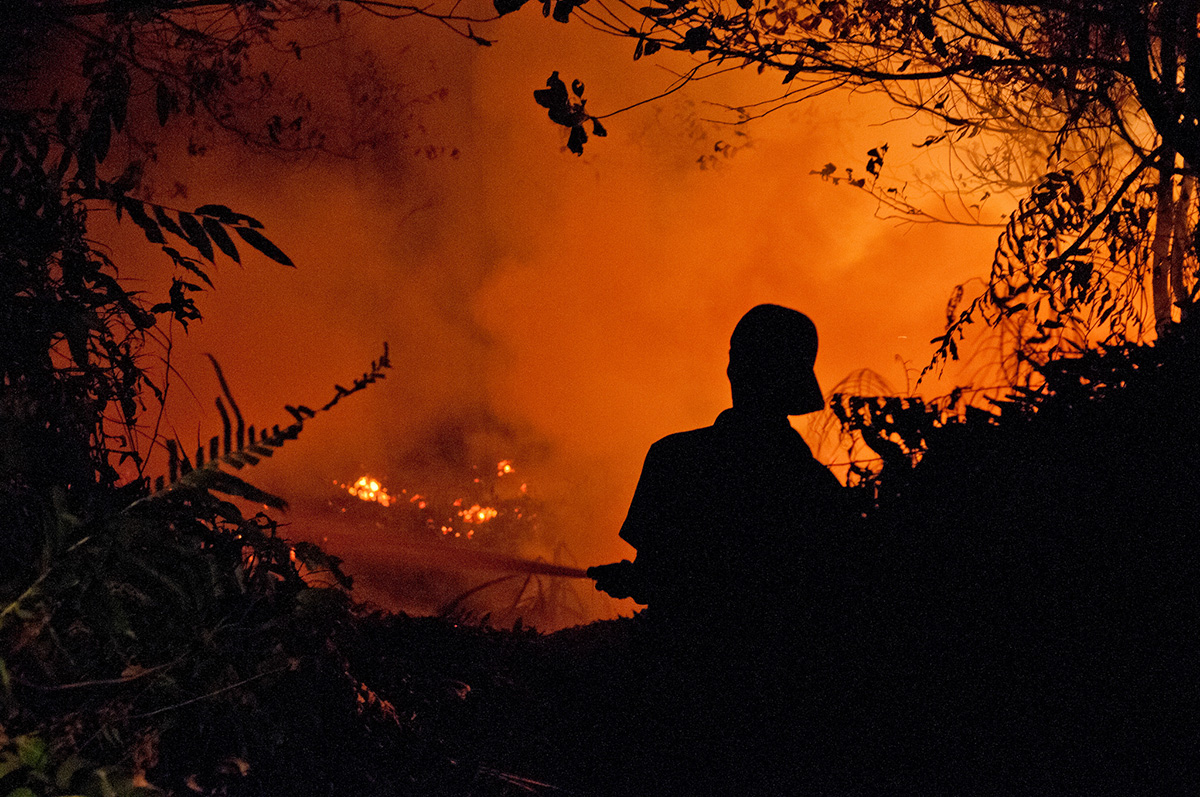The Fate of Indonesia’s Peat Restoration
By Pantau GambutQuestioning the Government's Commitment to Climate Justice

Friday (4/11/2022), President Joko Widodo (Jokowi) et al. submitted a Judicial Review (JR) in the case of forest and land fires (karhutla) in Central Kalimantan with case number 980 PK/PDT/2022. In that case, the Supreme Court (MA) sentenced Jokowi to have committed an unlawful act in the 2015 forest and land fires case. Sitting as a JR applicant, namely: (1) the State cq the President of the Republic of Indonesia cq the Minister of Home Affairs cq the Governor of Central Kalimantan (2) the State cq the President of the Republic of Indonesia cq the Minister of KLHK (3) The State cq the President of the Republic of Indonesia.
In short, the decision of the forest fire lawsuit contains a court order to deliver a regulation to terminate forest fires in Central Kalimantan and is also obliged to protect citizens from the threat of forest and land fires, including building health facilities. Submitting JR raises questions about the government's commitment to environmental protection and climate commitments, including efforts to protect peat ecosystems.
This extraordinary legal effort is unsurprising. In July 2019, the state repeatedly appealed and was rejected with a decision in favor of the Citizen Lawsuit (CLS). This JR effort has further extended the government's environmental and climate protection deterioration, including its commitment to restoring and protecting peat ecosystems. Pantau Gambut views this based on the following three basic arguments:
- This JR is a bad precedent for corporations found guilty in forest and land fire cases and the government's inadequacy in handling cases against a number of corporations found guilty in the KARHUTLA case, many of which have not been executed until now.
- The JR action will risk the peatland ecosystem, which significantly impacts climate change. Pantau Gambut's analysis of 2015 and 2019 KLHK's peat fire data shows that 14% of the burned area is in Riau, 36% is in Central Kalimantan, where CLS's lawsuit filed against the forest and land fires case, and the rest burned areas is spreading across other provinces with peatland.
- The JR action shows the weak commitment to climate and peat ecosystem protection affected by forest and land fires and significantly impacts global warming. Especially after the ratification of the Omnibus Law and the loss of authority to supervise concessions by BRGM. The submission of the JR ahead of COP27 reminded the statement of the minister of KLHK before the PPI (Indonesian Student Association) in 2021 in Glasgow, "The massive development in the era of President Joko Widodo must not stop in the name of carbon emissions or deforestation."
In substance, the Citizen Lawsuit (CLS) in Central Kalimantan is to encourage the government to make improvements for good governance. The aim is to ensure the prevention of environmental damage, environmental restoration, and restoration of people's rights in the midst of an ecological emergency. Where, forest areas and peat ecosystems are damaged and their function declines due to deforestation carried out by corporations and government projects, resulting in ecological disasters of floods and forest fires recurring every year.
Considering the above, Pantau Gambut condemns the President's JR efforts. We view that:
- Citizens' lawsuits (CLS) in forest and land fires, air pollution in Jakarta, and other similar cases must be seen as a citizen's effort to remind the government of its negligence in fulfilling its mandate and obligation to provide clean air and maintain a healthy living environment.
- Pantau Gambut sees citizen lawsuits as citizens' efforts to remind the government to carry out its mandate. This is not about winning or losing, let alone being ashamed and angry, because legal mechanisms remind the people.
- Pantau Gambut sees this lawsuit as an effort by the people to remind the state to carry out its mandate. This is not a matter of winning or losing, let alone feeling ashamed and angry, because the citizens remind the government through legal mechanisms. The implementation of JR and legal resistance from the government reflects the character of the state apparatus, which does not want to listen to warnings and requests from the people they are supposed to care for and serve.
- This JR's submission reflects the state's lack of understanding of its mandate and obligations. The resistance carried out by the government explains that there are violations of people's rights to obtain a healthy living environment in Indonesia.
- Pantau Gambut believes the government's resistance to the Supreme Court's decision should be the President's attention. Reviewing concession license violations, establishing a hospital for forest and land fire victims, planning for better natural resource management, and saving peat ecosystems in Indonesia are the government's mandates and responsibilities that do not need to be requested and reminded by citizens.
If you require guidance or consultation regarding this publication, you may contact:
Wahyu A Perdana 082112395919 Pantau Gambut's Campaigner
Yoga Aprillianno 081390203344 Pantau Gambut's Media Campaigner



